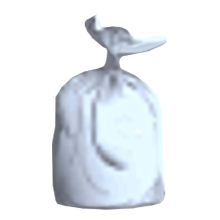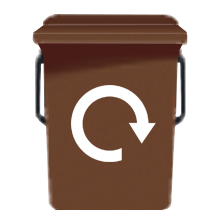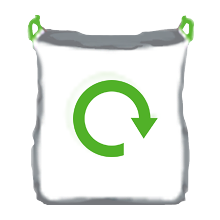The Drug and Alcohol Strategy 2015 - 2020 was approved by the States of Guernsey in January 2015.
What is the Drug & Alcohol Strategy?
- In 2007, the States of Guernsey adopted a five-year Drug and Alcohol Strategy, ("the Strategy") with the vision of minimising the harm caused by drug and alcohol misuse to Bailiwick residents of all ages. The Strategy has enabled the States, and its core partners in the third sector, to:-
- take a structured and prioritised approach to providing adequate education in respect of the risks of drug and alcohol misuse across the community,
- respond robustly to emerging trends, and
- provide support and assistance to those islanders, and their families, troubled by addiction.
Help and Support
- If you need any information, advice, support on any issues regarding drugs or alcohol you can contact:
- Drug Concern Tel 729000 http://www.drugconcern.org/
- Guernsey Alcohol Advisory Service tel 723255 www.gaas.org.gg
- Alanon tel. 07781 416950
- Alcoholics anonymous www.aaguernsey.info tel. 713480
- Talk to FRANK http://www.talktofrank.com
- Alcohol Concern www.alcoholconcern.org.uk
- Samaritans www.samaritans.org tel. 116123
- Health Promotion Facebook page
- Police Facebook page
The 2015-2020 Strategy was approved by the States of Guernsey and aims to build upon the successes of the previous Strategy, focusing the efforts of government, public services and community partners to tackle drug and alcohol misuse in ways appropriate to the Bailiwick setting, through the following areas of focus:-
Reducing supply and demand
- Law Enforcement will still continue to deter the importation and supply of illegal drugs, but the Strategy will look to review and assess the current legislation in respect of drug related offending to ensure that it remains suitably appropriate and robust.
- Alternative ways of responding to drug and alcohol related offending will be explored as well as the misuse of prescription drugs.
- The development of a multi agency approach including local GPs will continue.
- A range of awareness campaigns including social media, designed to ensure that Islanders are aware of the risks and harms of substance abuse will be developed.
- We will look at the feasibility of reducing the availability of cheap and heavily discounted alcohol and irresponsible promotions.
- The Strategy will continue to actively work with the licensed trade locally, providing advice and assistance in respect of the responsible discharge of their licence.
Supporting children, young people and families
- The education programme within schools will continue, along with the greater promotion of outreach services.
- The Strategy is increasing its emphasis on prevention and early intervention to divert young people away from drug and alcohol misuse, thereby reducing the need for clinical intervention.
- The Strategy hopes to promote access to family focused services at an earlier stage in order to divert families towards targeted help and support before escalation of the situation.
Working in partnership
- Strong working relationships with partners in the third sector, most particularly those working with individuals with substance misuse issues will continue to develop.
- The Strategy also looks forward to enhancing its relationships with charities where alcohol and drugs are not their primary areas of focus but where substance misuse may be a contributory factor for a proportion of their clients.
- Feedback from service users is most important to ensure that provision best meets the need of the individual and remains fit for purpose. Particular emphasis will be placed on the development of risk assessed integrated pathways for prisoners, providing proactive specialist support to retain recovery.
- Emerging drugs of concern (new psychoactive substances - NPS) issues benefit from the liaison with inter-island and national networks.
- The British Irish Council's drug work stream has been established for many years, and will continue with both drug and alcohol streams (alcohol since 2013).
- The Strategy will also seek to maintain and develop its relationship with other States' strategies, such as the Criminal Justice Strategy, the Domestic Abuse Strategy and the Tobacco Control Strategy.
Providing treatment
- The aim is to increase the number of people moving through treatment into sustained recovery with a single point of access and agreed information sharing and confidentiality protocols.
- One priority for the Strategy will be the development, and implementation, of a model of shared care between treatment providers and GPs. This will improve the treatment package available for clients, and should greater enable access to services.
Encouraging responsible choice
- Awareness campaigns locally in respect of the risks of alcohol consumption and the consequences of problem alcohol use will continue targeting parents and their responsibility in this area, and the effects of alcohol on the brain in particular in respect of young people and the economic loss within the workplace due to excessive alcohol.
- Wider use of opportunistic Identification and Brief Advice, through the use of a recognised tool, swiftly assess an individual's drinking habits, with the aim, where appropriate, to motivate them to reduce their alcohol consumption.
Monitoring work streams through Training, Data collection, Monitoring and Evaluation
- Data that is collected locally across service providers is not only used for key performance indicators, assessing the success of the Strategy locally, but is used more widely for benchmarking both nationally and internationally.
- The greater use of key performance indicators and outcome measures under the new Strategy will allow further monitoring and assessment of the Strategy's Service Level Agreements
- A list of the Strategy's intended key performance indicators can be found within Appendix 2.
- The Strategy will continue to provide a rolling programme of training to ensure that all relevant staff across States Committees and partner organisations are trained as appropriate to the highest standard and kept up to date with current best practice and issues.
- The Drug and Alcohol Strategy 2015-2020 is in the downloads section of this page, where you can also see the summary of the Strategy in the document entitled Framework.
Drugs in Brief
- The Law
- Drug Driving
- People often think only of drink-driving, however it is dangerous to drive under the influence of any substance and it is an offence if a person is found to be under the influence of any substance whilst driving.
- Drug Quiz
- How clued up are you on drugs? An online Quiz is available for you to test your knowledge at http://www.yor-ok.org.uk/young-people/Drugs/drugsquiz.html
- Common Myths
- The Drug & Alcohol Strategy Coordinator has collated a list of 10 Common Myths surrounding the use of illegal substances. This can be downloaded from this page.
- The Facts
- Also on this page you will find documents that outline key facts in relation to different types of illegal drugs.
- Anyone involved with illegal substances will be subject to the penalties of existing legislation.
Alcohol
- Alcohol is legal and therefore anyone over the age of 18 can drink alcohol. However, there are strict laws governing alcohol consumption in Guernsey in regard to young people. It is important to check that you are not breaking the law by allowing your child to purchase or to drink alcohol.
- The Law
- It is against the law:
- for an adult to buy or attempt to buy alcohol on behalf of someone under 18;
- to sell alcohol to someone under 18, anywhere;
- for someone under 18 to buy alcohol, attempt to buy alcohol or to be sold alcohol in any circumstances;
- for someone under 18 to drink alcohol in licensed premises;
- for an adult to buy alcohol for a person under 18 for consumption on licensed premises.
- The Facts
- There is much publicity now regarding the beneficial effects on alcohol, for example how it reduces the incidence of coronary heart disease or promotes longer life, although the evidence for these benefits is hotly disputed.
- What though is less disputed is that alcohol is a poison and has a marked effect on the body and the nervous system, including death, when consumed in any quantity.
- The effects of alcohol vary enormously dependent on many factors. Factors such as gender, age, weight, level of fitness, mood and drinking experience for example will all increase or decrease the effects of alcohol.
- Common Myths
- The Drug & Alcohol Strategy Coordinator has prepared a document outlining some of the common myths associated with alcohol consumption. This is available for download from this page.
- Are you putting your health at risk?
- Many people are able to keep their drinking within the recommended limits of alcohol consumption, so their risk of alcohol-related health problems is low. However, for some, the amount of alcohol they drink could put them at risk of damaging their health. Alcohol misuse is drinking more than the recommended limits of alcohol consumption.
- There are three main types of alcohol misuse:
- hazardous drinking: drinking over the recommended limits
- harmful drinking: drinking over the recommended limits and experiencing alcohol-related health problems
- dependent drinking: feeling unable to function without alcohol
- Alcohol Quiz
- How much do you know about alcohol and its effects on the body? Some quizzes prepared by the DAS and also YorOK are available for download from this page. The answers are also provided as a separate document for download. Go ahead and see how much you know!
- Liquor Licence Exams
- The Committee for Home Affairs is responsible for regulating Liquor Licensing legislation within Guernsey and Herm. The sale and supply of alcohol in Guernsey is regulated by Liquor Licensing (Guernsey) Ordinance, 2006. The Committee for Home Affairs, the Guernsey Police and the Courts expect anybody working in the licensed trade to have a good understanding of the relevant legislation.
- Anybody who holds or makes an application to hold a liquor licence must have passed the liquor licensing examination, and you are required to make arrangements to sit the exam prior to attendance at Court for the hearing of your application. Retail staff are also encouraged to sit the exam.
- The Drug & Alcohol Strategy endorses the Liquor Licence Exams and further information about them can be obtained here.
- Drink Driving
- In Guernsey, the alcohol limit for drivers is 80mg of alcohol per 100ml of blood, 35mcg per 100ml of breath or 107mg per 100ml of urine.
- Even small amounts of alcohol can affect your ability to drive so the only safe advice is to avoid any alcohol if you are driving.
- How to ensure you don't drink and drive
- Ensure that you have given consideration to how you are going to get home before you go out for a drink. This could be arranging within your group of friends who would be willing to act as designated driver, or booking a taxi prior to going out.
- Further queries
- If you have any further queries about this area of the Drug & Alcohol Strategy you are encouraged to contact the Drug & Alcohol Strategy Coordinator who may be able to answer your query or who can direct you to the appropriate organisation.
Community Outreach
- The StreetBus
- Young people need support when moving from childhood to adulthood. For some this transition is traumatic and the traditional support offered within the education system doesn't always work. They may be struggling at school and are finding it difficult dealing with authority. It is these young people who truly need our less conventional method of offering support
- The Drug & Alcohol Strategy, in partnership with Help a Guernsey Child and the Youth Service Committee, have funded a StreetBus which has been designed to meet the needs of the local community.
- Organisations who may wish to use the Service should contact:
- The StreetBus is available for use by all organisations offering services in the community. If your organisation is interested in making a booking please contact the Youth Commission on 01481 756099 or info@youthcommission.gg.
- All other queries about the StreetBus and the initiative should be directed to the Drug & Alcohol Strategy Coordinator (use the Contact on this page).













